This article was written by Luna Rose. Luna Rose is an autistic community member who specializes in writing and autism. She holds a degree in Informatics and has spoken at college events to improve understanding about disabilities. Luna Rose leads wikiHow's Autism Project.
There are 25 references cited in this article, which can be found at the bottom of the page.
wikiHow marks an article as reader-approved once it receives enough positive feedback. In this case, 88% of readers who voted found the article helpful, earning it our reader-approved status.
This article has been viewed 72,214 times.
April can be a very challenging month for autistic people, who face disaster rhetoric, praise for organizations that hurt them, calls for cures, and routine dehumanization. This can be very stressing on their mental health.[1] One survey finds that 56% of autistics say awareness campaigns harm their mental health, 59% say their self-image has been harmed, and 62% say that awareness campaigns have caused mental health episodes.[2] [3] Here is how to help protect their self-esteem and keep their spirits high.
Steps
Discussing Autism
-
1Prepare yourself first. Stop listening to parent groups that blame autism for their misery.[4] Read from autistic adults about how to support your loved one. Stay away from any group (e.g., Autism Speaks) that has been called a hate group.[5] [6] Refuse to let overly negative groups form your opinion of your loved one.
-
2Limit general media exposure, particularly regarding autism awareness. Turn off the TV during walks "for autism," put the newspaper out of sight, and encourage them to be careful about the internet. Autism awareness messages will only upset them.
- Even events that seem neutral/positive in their coverage can be upsetting if they use puzzle piece imagery or are sponsored by Autism Speaks.[7]
Advertisement -
3Celebrate Autism Acceptance Month instead. This April event celebrates diversity, encouraging autistic people to be themselves and pushing for support and understanding rather than false or eugenic "cures."[8] Show your autistic loved one articles about this month, and let them see people promoting acceptance.
- Try dressing in #RedInstead together.
- Use the neurodiversity symbol.
- Go to (or organize!) local Autism Acceptance events and discuss acceptance in your community.
-
4Find media and gifts devoted to autism acceptance. Did you find a picture celebrating differences? Show it to them. Is there an adorable autism acceptance T-shirt online? Buy it in their size. This will help reaffirm your acceptance of them and help them feel proud of their identity.
- Puzzle piece motifs tend to be associated with Autism Speaks and their cohorts, so stay away from these.[9]
- "Light It Up Blue" is from Autism Speaks.[10]
- Autism acceptance proponents tend to use infinity signs (which symbolize neurodiversity[11] ), rainbows, and red (from #RedInstead, formerly #WalkInRed).
-
5
-
6Listen to autistic adults. The autistic community can offer the clearest perspective, and can give you plenty of suggestions for supporting your loved one.[15] [16]
-
7Help them network with other autistic people. Seeing others like them can help their self-esteem, and they can relate to each other more easily.
Providing Emotional Support
Autistic people who feel accepted, and do not try to "camouflage" by hiding themselves, are less likely to suffer health problems like depression.[17]
-
1Make it very clear that you accept them for who they are. Respect their needs and preferences, and allow them to have fun and be themselves. Show them that you're here to help and support them, not to extinguish or fit them into the mold of non-autistic.
- Ethical, fun/neutral therapy is absolutely okay.
- Extinguishing harmless symptoms, like non-destructive stimming, special interests, or personal oddities (e.g., not wanting many friends) is damaging and not okay.
-
2Set aside extra time to do things together. Play with toys on the floor, bead bracelets, or talk about a shared topic of interest. Simply being there can help them feel supported.
- This can help distract them from hate speech and ethical problems.
-
3Praise their strengths. This will help them remember that they are more than a list of deficits. Compliment their skill with a paintbrush, their patience towards their younger brother, or their love of learning. This will help keep their self-esteem afloat.
-
4Engage with their special interests and therapy activities. Ask them about how your car works or offer to play catch together to help their motor skills. This will help them feel that you love all of them, including the autistic parts.
-
5Keep an eye on their emotional state. Sometimes autistic people harbor very low self-esteem, and may even become depressed or suicidal.[18] [19] Rhetoric describing autism as a tragic, family-destroying calamity can make this worse. Tell a doctor right away if this becomes an issue.
- Pay especially close attention if they are a self-advocate or if they fight stigma. Autistic people have a strong sense of justice and may need to be reminded that they cannot solve the world's problems, no matter how hard they work.
-
6Offer plenty of reassurance. Autism Awareness Month often comes with rhetoric confirming autistic people's fears that they are burdens.[20] [21] Use your words and actions to make a strong statement otherwise.[22]
- Use this month to practice your patience and listening skills.
- Give them age-appropriate opportunities to help out and feel useful.
- Encourage their strengths and applaud their successes.
-
7Listen to their struggles. No matter how much you try, they will inevitably feel down about the anti-autism rhetoric. Let them voice their feelings and assure them that the hateful people are wrong about them. They are okay the way they are.
- Validate their feelings.
- It's okay if you need to pause to think before responding. Autistic people understand, and this is a difficult problem with no easy answers.
- It's okay to simply say "I'm so sorry to hear that" and "That's too bad." Sometimes that's all you can say.
Warnings
- Never use harmful phrases that discourage stimming. An autistic person's stimming is part of them and should only be redirected if it is harming the person or another person.⧼thumbs_response⧽
References
- ↑ Emma's Hope Book: Don't Be Blue A young poet shares her fear of autism awareness
- ↑ https://kpagination.files.wordpress.com/2016/09/autism-and-mental-health_aacc-2016.pdf
- ↑ https://kpagination.files.wordpress.com/2016/09/transcriptsourcesandcontactinfoforaacc.pdf
- ↑ Emma's Hope Book: Autism Awareness
- ↑ Autism Women's Network: Is Autism Speaks a Hate Group? tw hate speech, Autism Speaks
- ↑ ASAN: 2014 Joint Letter to the Sponsors of Autism Speaks
- ↑ Emma's Hope Book: What's Wrong with Autism Speaks? cw torture (Judge Rotenberg Center)
- ↑ About Autism Acceptance Month
- ↑ Autistic Alex: Why you need to stop using the puzzle piece to represent autistic people (mentions ABA)
- ↑ The Caffeinated Autistic: You aren't my friend if you Light It Up Blue tw Autism Speaks
- ↑ Wikipedia: Neurodiversity
- ↑ Autism Speaks Sounds Fear
- ↑ Horrific Autism Speaks "I am Autism" ad transcript Contains disturbing content
- ↑ Emma's Hope Book: "Burden"? I Don't Think So.
- ↑ Autism Women's Network Welcome Packet (PDF)
- ↑ [PLOS: Autism Awareness is Not Enough: Here's How to Change the World] (in-depth article featuring advice from many autistic adults)
- ↑ Experiences of Autism Acceptance and Mental Health in Autistic Adults
- ↑ Psych Central: Suicidal Thoughts 10 Times More Likely in Adults with Asperger's
- ↑ Autism Help: Depression, Suicide Risk and Autism
- ↑ Autistic Children are Now Seen as a Burden
- ↑ The Caffeinated Autistic: We are not a burden (tw: abuse, rape, murder, Autism Speaks)
- ↑ Lydia Brown: You Are Not a Burden
- Autism Acceptance Month Official Website
- Autistic Self Advocacy Network
- Autism Women's Network

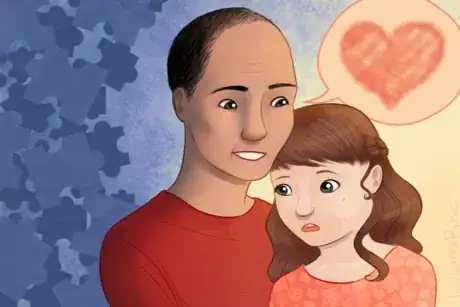
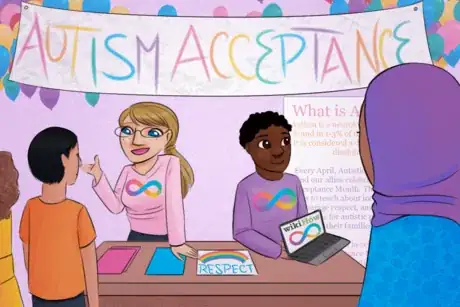
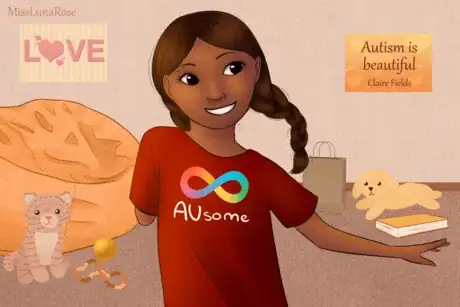

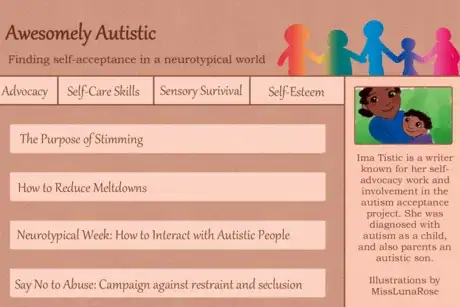

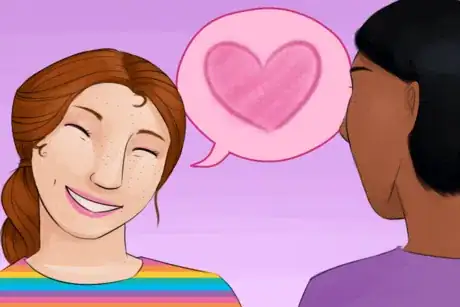
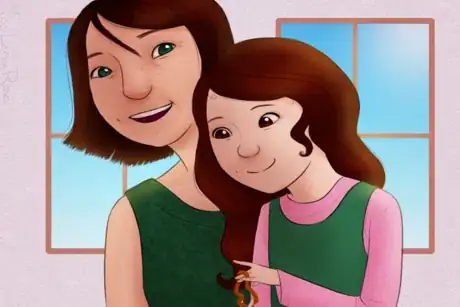



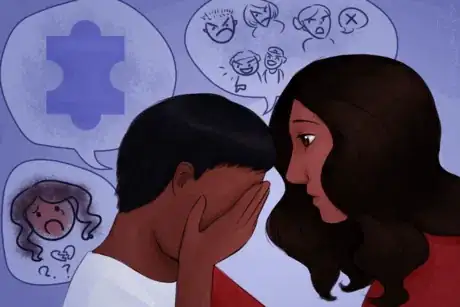
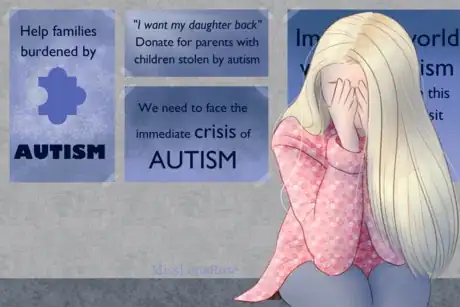









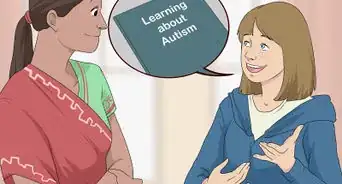
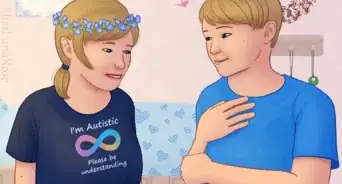



















































Medical Disclaimer
The content of this article is not intended to be a substitute for professional medical advice, examination, diagnosis, or treatment. You should always contact your doctor or other qualified healthcare professional before starting, changing, or stopping any kind of health treatment.
Read More...